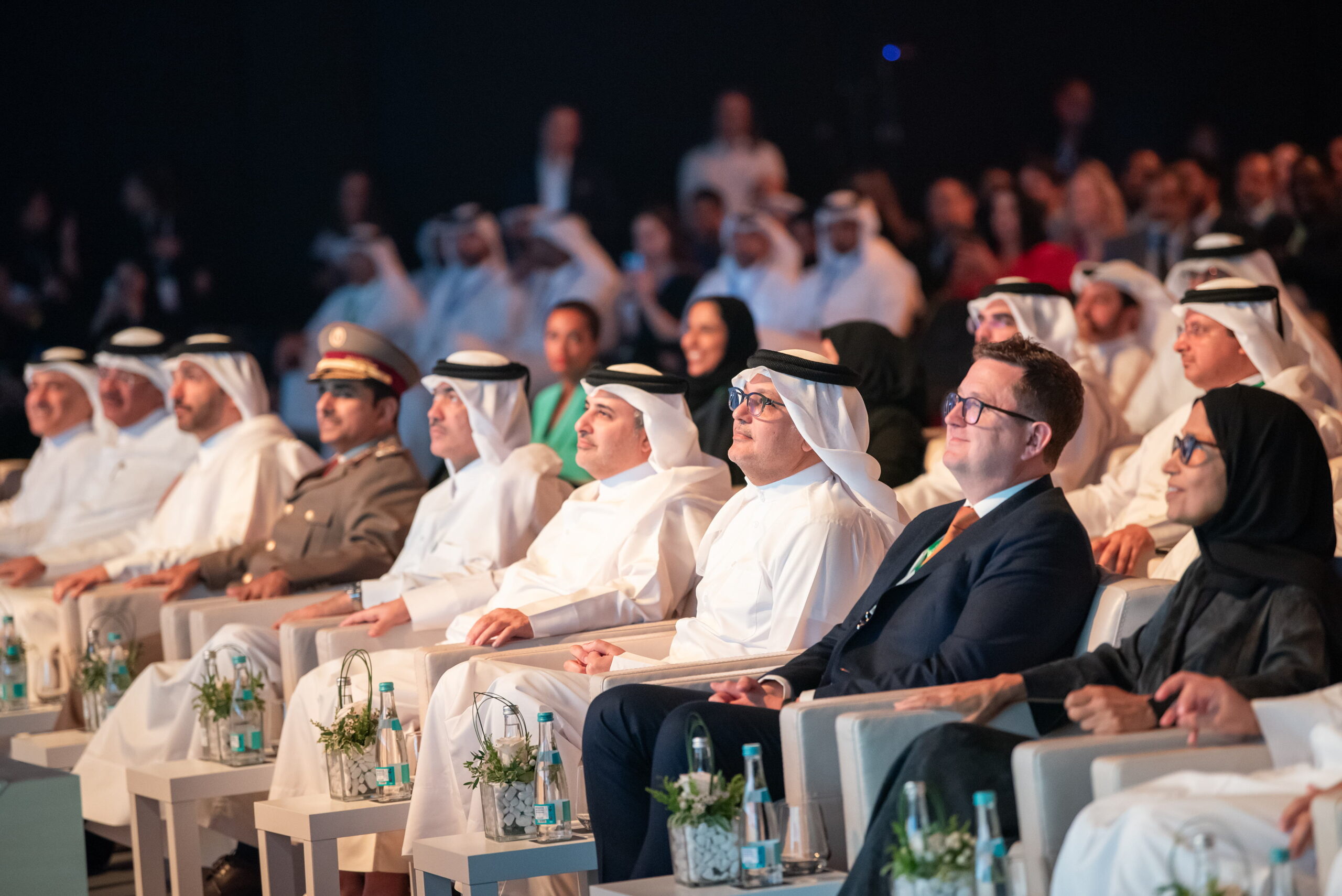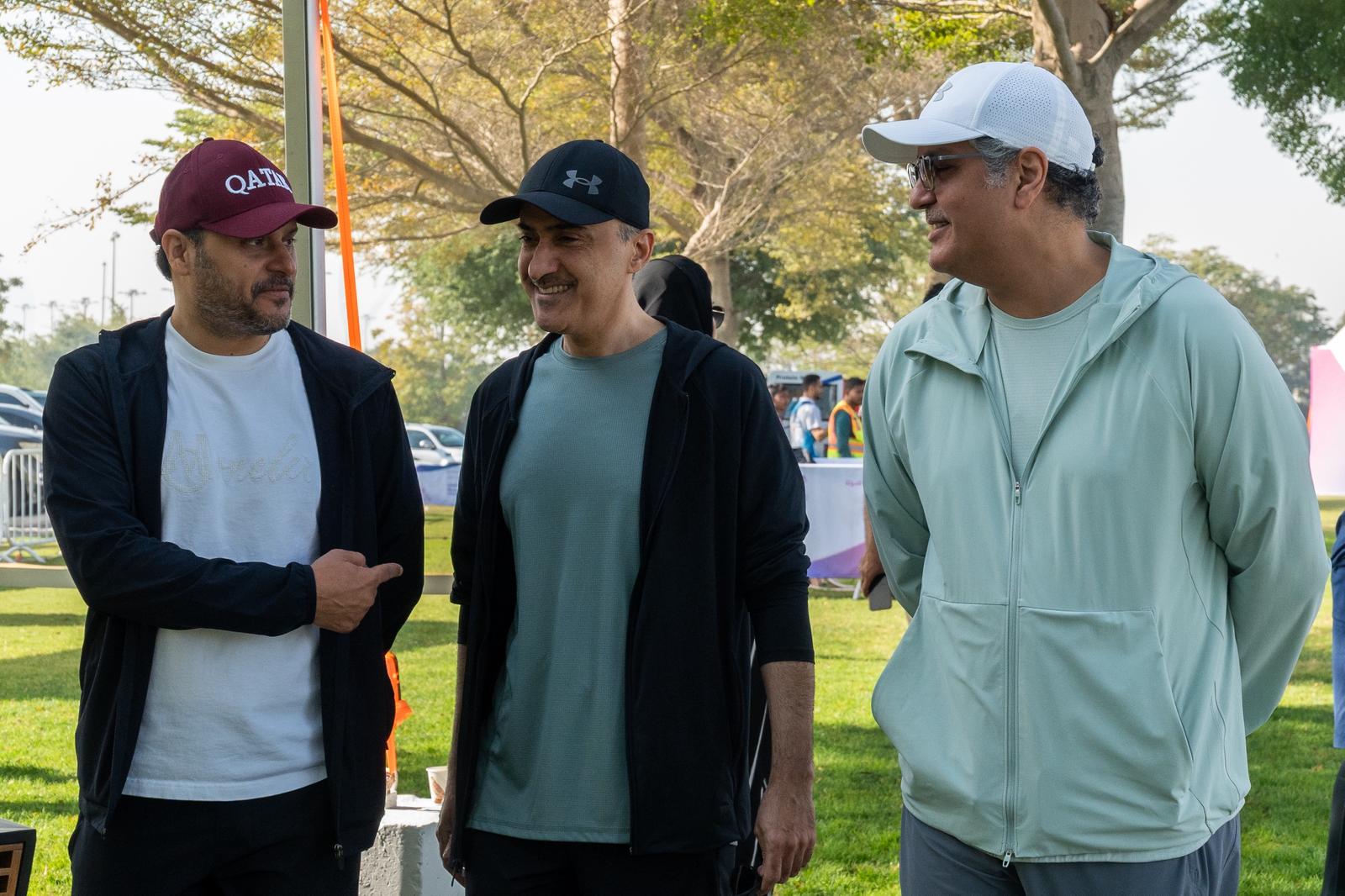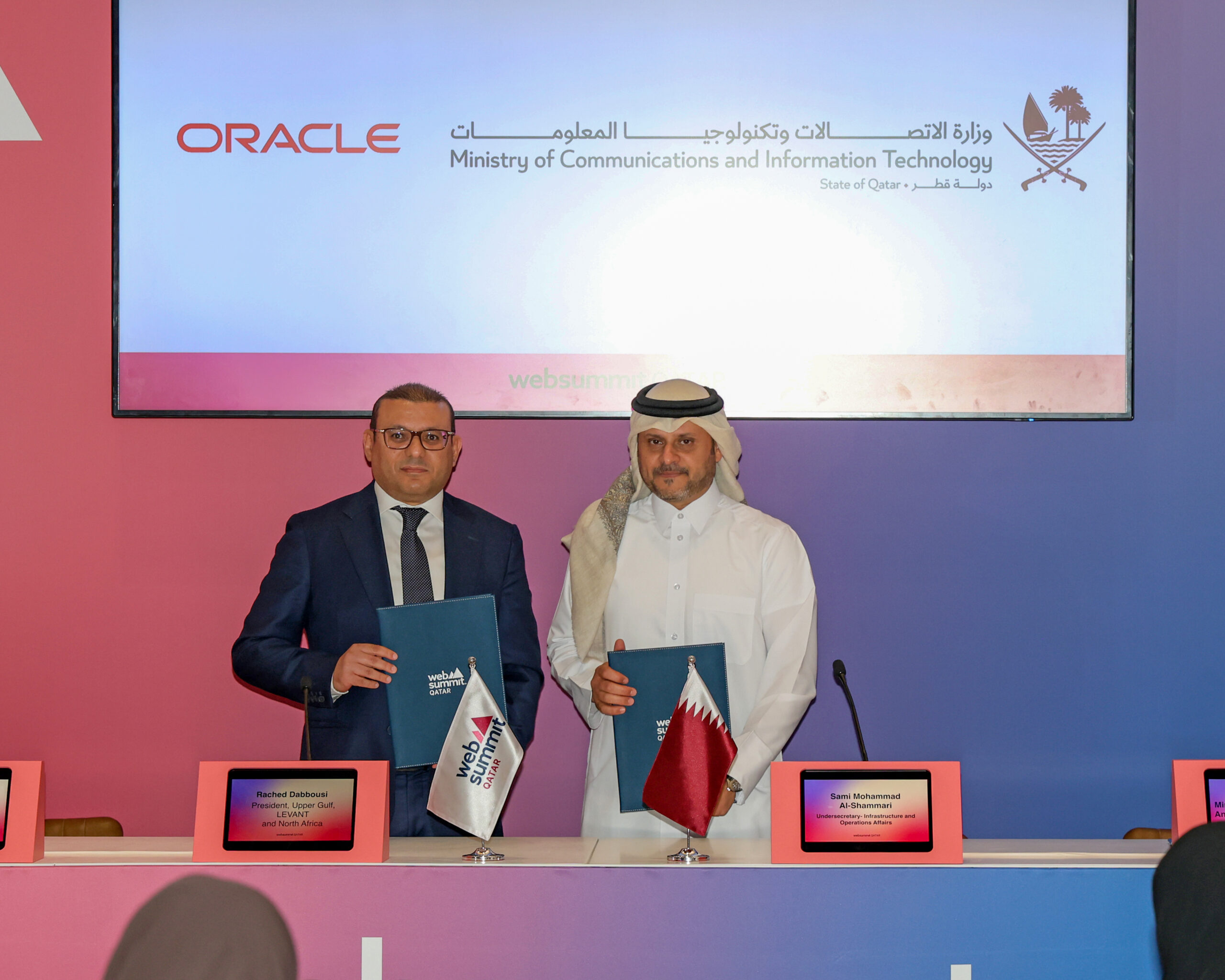- English

MCIT Concludes Its Participation in Google Cloud Summit Doha 2025
- Under the patronage of H.E. Mr. Mohammed bin Ali Al Mannai, Minister of Communications and Information Technology, the Google Cloud Summit Doha 2025 was held.
- E. the Minister honored several government entities that made notable progress in adopting cloud solutions in collaboration with Google Cloud.
- E. the Minister toured the exhibition booths of participating entities, where he explored key innovations in cloud computing, artificial intelligence, and data analytics.
- Sami Al Shammari: 56 government entities are currently benefiting from the strategic partnership with Google Cloud under the National Cloud Computing Framework.
- The Ministry’s booth showcased several strategic initiatives, including the Arab AI Project – FANAAR, the experimental environments for AI and Extended Reality technologies, and the professional fellowship program aimed at developing national talent in advanced digital fields.
Under the patronage of H.E. Mr. Mohammed bin Ali Al Mannai, Minister of Communications and Information Technology, the Google Cloud Summit Doha 2025 was held today, 29 May 2025, at the Qatar National Convention Centre, marking the second anniversary of the launch of the Google Cloud Region in the State of Qatar. MCIT concluded its participation in the summit, which was hosted by Google Cloud and attended by senior officials, decision-makers, and experts in cloud technologies and artificial intelligence.
The Ministry’s participation underscores its pivotal role in supporting government digital transformation and promoting the adoption of cloud computing technologies in the State of Qatar, as part of its ongoing efforts to advance the goals of the Digital Agenda 2030 and build a robust digital infrastructure that fosters innovation and drives sustainable development.
In his opening address at the summit, Mr. Sami Al Shammari, Assistant Undersecretary for Infrastructure and Operations Affairs at MCIT, affirmed that the Ministry’s participation underscores its steadfast commitment to digital transformation as a core strategic pillar of government modernization. He noted that the partnership with Google Cloud stands as a successful model for accelerating the institutional adoption of cloud technologies, to ensure government entities are well-prepared to operate with agility and maintain business continuity within a secure digital environment.
Al Shammari highlighted that 56 government entities are currently benefiting from robust and secure cloud solutions that support business continuity and enhance operational efficiency across the public sector. He further emphasized that the launch of the Overseas Internship Program in Dublin, in partnership with Google Cloud, marks a milestone in building national capabilities that can lead and localize advanced technologies, aligning with the goals of the Digital Agenda 2030.
During the summit, H.E. Mr. Mohammed bin Ali Al Mannai honored several government entities collaborating with Google Cloud that have made notable progress in adopting cloud solutions and have contributed to advancing digital transformation within their respective sectors. The recognition reflects the Ministry’s appreciation for the efforts of these entities in improving their operational processes and enhancing their digital services, in line with its vision to build an integrated, smart government capable of keeping pace with global digital developments. It also highlights the importance of public-private partnerships in accelerating digital transformation and creating an innovation-friendly environment.
Ms. Eman Al Kuwari, Director of the Digital Innovation Department at MCIT, also participated in a panel discussion titled “Purposeful Innovation: Insights into Empowering Talent and Building Strategic Partnerships to Shape Qatar’s Digital Future.” During the session, she outlined key aspects of Qatar’s digital transformation and highlighted the Ministry’s leading initiatives, including the AI and XR sandboxes, smart city solutions, and public digital services. Al Kuwari emphasized the critical role of strategic partnerships in accelerating the adoption of emerging technologies and the importance of investing in national talent development, particularly among youth.
Throughout the summit, the Ministry’s dedicated booth showcased a range of national projects and initiatives aimed at strengthening the country’s digital infrastructure. This included the “Fanar” project — the Arab AI initiative — which represents a significant achievement in the development of AI technologies rooted in Arabic language and culture. The project embodies the vision of Qatar National Vision 2030 and aligns with the pillars of the Digital Agenda 2030. The Ministry also presented an interactive overview of the Extended Reality (XR) Sandbox, which provides a dynamic environment for developing and testing XR Sandbox. In addition, the AI Sandbox was showcased as a platform that supports innovators and entrepreneurs in designing AI-powered solutions. The Ministry also highlighted the Professional Development Program, which focuses on equipping national talent with globally recognized digital competencies.
The Ministry’s presence at the summit served as a platform to highlight its strategic partnership with Google Cloud, which now includes 56 government entities. This partnership is a key pillar in advancing digital transformation across the public sector by providing a reliable and secure cloud infrastructure that enhances operational efficiency, ensures business continuity, and prepares government entities for future demands. The partnership also opens new opportunities for adopting cloud services based on international best practices, which contributes to improving the quality of services provided to citizens and residents.
As part of this strategic partnership, the Ministry continues to expand the use of cloud-based solutions across various government sectors by strengthening collaboration with leading global technology providers and adopting flexible, future-ready operating models. This supports the efficiency of government operations through smart, interconnected systems that enable rapid access to data and optimize the use of operational resources. These efforts are aligned with the Ministry’s ongoing commitment to delivering the objectives of the Digital Agenda 2030, which serves as Qatar’s national roadmap for digital transformation and aims to build a sustainable, knowledge-based digital economy.




